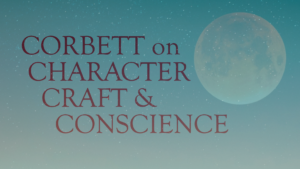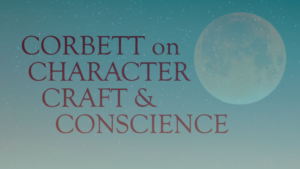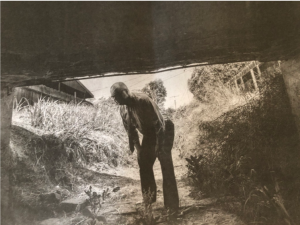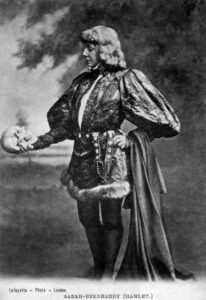Click Here
For today’s post I’m interviewing oral historian Alison Owings, whose latest book, Mayor of the Tenderloin, about San Francisco homeless advocate Del Seymour, came out this past Tuesday, September 10th.
The book has garnered considerable pre-publication praise, such as:
“Mayor of the Tenderloin is a charming, sometimes heartbreaking, tender, and inspiring story, important and beautifully written.”
—Anne Lamott, author of Almost Everything
“Alison Owings is a master of oral history. She is a great storyteller, and in Mayor of the Tenderloin, she has a great story to tell.”
—Dan Rather, author of What Unites Us
And Kevin Fagan remarked in a San Francisco Chronicle review:
Del Seymour is one of the hardest-working advocates for homeless people in San Francisco … and is regularly consulted for his street wisdom.
That wisdom came the hard way. He used to be a homeless crack addict and pimp, jailed many times before he shook drugs 14 years ago and started his uplifting [Tenderloin] tour and Code Tenderloin jobs programs. But what most people don’t know is that before all of that, he was an Army medic in the Vietnam War, a Los Angeles Fire Department paramedic, owner of a construction company and an electrician.
That’s where this book fills in the gaps. And how. Author Alison Owings lays out the at-times astonishing journey that led Seymour from a hard-knocks childhood in the Chicago projects through an adulthood that had him sleeping in a cardboard box in Sacramento, doorways and dive hotels in San Francisco, making and spending money like water legitimately as a businessman in Los Angeles and illegitimately as a pimp here, and finally shaking dope cold turkey when he hit rock bottom in a fight over $10 to $20 worth of crack.
Alison began her writing career as a journalist and has traveled extensively around the world. Her travels specifically in Europe inspired her to write a satire, The Wander Woman’s Phrasebook / How to Meet or Avoid People in Three Romance Languages, and her highly praised first foray into oral history, Frauen: German Women Recall the Third Reich.
Frauen set the stage for her next three multi-year projects, Hey, Waitress! The USA from the Other Side of the Tray; Indian Voices: Listening to Native Americans; and now Mayor of the Tenderloin: Del Seymour’s Journey from Living on the Streets to Fighting Homelessness in San Francisco.
Their thematic commonality? An examination of stereotypes. The implied question: when you picture a German woman of the Third Reich, or an American waitress, or a Native American, or a homeless person, do you see them the same way after reading these books?
Hi, Alison, welcome to Writer Unboxed. You come from a journalism background, but you’ve focused specifically on oral histories in your last four books. What prompted your interest in that unique approach?
In a way it’s an adjunct to journalism—asking questions. It began inadvertently, too, when I realized that retired German women I met who were living in a village in southern Spain were witnesses to the Third Reich and had more or less been ignored. They became the basis of Frauen and set my preference of “interview virgins”—first timers. I’m not too interested in interviewing […]
Read MoreI’m reading instead.
I’ll take your questions now. (Joke.)
Actually, that opening answer is very much true, for reasons I’ll discuss below, but it’s not the whole picture.
It’s also not the case that I’ve stopped writing entirely. I just turned in a story I was asked to provide for an anthology benefitting Democracy Docket, the organization run by Marc Elias fighting against the multiple voter restriction and suppression laws springing up all over the country. The anthology is the third in a series, Low Down Dirty Vote Vol. III, and my story is titled “An Incident at the Cultural Frontier,” based on my own experiences and concerns serving as a poll worker in my hometown, a liberal mixed-ethnic enclave in an otherwise overwhelmingly monocultural conservative county. Given the editor’s response to my submission—“You wrote the HELL out of that story”—I don’t believe my writing skills have atrophied in any significant way.
But I had hit a wall in the novel I’m working on. I’d managed approximately 150 pages and just felt adrift, not solely because of the work itse
The novel is the second in a series, and my attempts to find an agent for the first book have so far been unsuccessful. My editor, Zoe Quinton, is taking but another look at the manuscript to see if anything jumps out at her as being a red flag, but I’m increasingly inclined to believe it’s not the book that’s the problem. It’s me.
At a recent Craftfest luncheon (Craftfest is the teaching adjunct to Thrillerfest), an editor for a major publishing house remarked, “We don’t invest in books. We invest in writers.” He meant that publishers typically do not consider a book as a one-shot deal, but expect its author to deliver at least five books with increasing sales numbers book to book. If sales don’t rise, the writer is let go, and the process repeats with another pigeon—ahem, writer—for there is never a dearth of aspiring authors desperate to be published.
At the beginning of my career, I was one such writer. I had some notable success early and was even considered a rising star by my publisher, with the caveat, “David’s not for everyone.” (If they’d slathered that across the cover of my books, they would have sold better. But I digress.)
Be that as it may, after my sales failed to increase through the fourth book, I was let go. I’ve been wandering the publishing wilderness ever since, and the poor showing of my last novel, despite a prize nomination, most likely nailed the proverbial coffin shut.
I felt bad about this for some time but have finally come around to regard it instead as liberating. I continue to write if only to ensure that, as a teacher, I do not lose touch with the process, because I believe I owe that to my students. I need to be able to identify with their struggles and the best way to do that is to share them.
But it may be that I am one of those “pre-published” authors who goes the route of self-publishing, not to become rich or famous but to provide readers who have enjoyed my work a chance to read more of it. The numbers may not be impressive to a publishing house, […]
Read MoreEvil? by neverything
Any quasi-sentient being who’s been paying attention to recent news has encountered frequent if not exuberant usage of that uniquely evocative word, “evil.”
The assassination of Qesem Suleimani alone has brought forth the word with impressive regularity, ironically not just to describe the decedent but also those responsible for his death.
The fact the word can be employed in such diametrically opposing ways suggests more than just moral relativism or ethical facility. It points out that, irrespective of whether something we might call evil truly exists, the use of the term to describe one’s adversary will continue as long as sanctimonious self-congratulation resides in the hearts and minds of mankind.
But as writers, we should avoid such convenient simplicities. We’re in the truth business, even when we employ fiction as our method—especially then.
Those of you who attended the Un-Conference may recall my presentation on villains, specifically my attempt to define what we mean by evil in a character. This is problematic given our need to justify, not judge our characters, and to keep in mind at all times that every character is the hero of his own narrative, regardless of what repulsive, horrifying, inexcusable means he employs to pursue his ends. That effort rests on our commitment to always see our characters as human subjects, not objects.
And yet even a passing acquaintance with the affairs of mankind alerts us to the presence of those individuals who not only cause harm and damage in the pursuit of what they want, they go further. The create that harm or damage deliberately, with “malice aforethought” or “malignant hearts,” or worse—they savor the harm, delight in it.
“The cruelty is the point,” as some have remarked concerning current immigration and asylum policies.
In creating a character who fits that prototype, if we wish to be honest, requires us to dig deep and explore where that sense of cruel vindication comes from, what generates and justifies not just the need to inflict pain but the exaltation in it.
Often, a sense of weakness or victimization is being reversed, not infrequently tinged with a profound sense of shame, guilt, or both. In this sense, it is an act of psychological legerdemain, where that sense of shameful victimization or weakness gets magically erased by being transferred onto another.
This also suggests that the new victim must be selected carefully, to truly expiate the old feelings of inadequacy, otherwise the magic won’t quite work.
It’s a sneaky business, finding just the right victim who best represents what we hate about ourselves. But this is a fool’s errand, because the magic is tainted by its nature. The shame and terror can never be truly erased—it really is part of us, not them—and so a new victim, a better victim, must be found, over and over, ad infinitum
This logic applies across a wide spectrum, from schoolyard bullies to abusive husbands to sadistic cops to serial killers, even to heads of state. Ivan the Terrible, after all, didn’t earn his catchy sobriquet by being open-hearted.
Whether the term “evil” applies to Qesem Suleimani is a question I don’t intend to address here. Dexter Filkins wrote an excellent profile of the man for the New Yorker in 2013. (To read it, go […]
Read MoreThis post is about series of vicious murders, a class I conducted on how to fictionalize such horrific events, and a student who taught me something important in the process.
This all took place late last month at the Book Passage Mystery Writers Conference in Corte Madera, California. For the past several years, I and fellow faculty member George Fong—former FBI Special Agent, now security head for ESPN and a novelist himself—have conducted a class where we take a criminal case, outline the facts, and then ask the participants how they would go about fictionalizing the material. The past two years, we’ve added Jim L’Etoile to the mix, a longtime veteran of the criminal justice system (he’s the son of prison warden)—and, you guessed it, he too is a novelist.
George, given his law enforcement background, has normally led the way by presenting the case; Jim and I have then led a group discussion on how to approach what George has presented as source material for fiction, asking such questions as: Who is the protagonist? Should there be a narrator? Who should have POV status? Where should the story begin? When should the identity of the criminal(s) be revealed? How will answers to these questions fundamentally change the tone, pacing, and dramatic tension of the narrative?
In the past, George has presented cases he has personally worked on, including the Yosemite murders and a Russian mafia kidnap-extortion case out of Los Angeles.
This year, however, he decided to look beyond his own experience and instead present a headline-grabber that many of the conference participants would surely know about: the Golden State Killer case.
George reached out to Steve Kramer, an attorney who previously worked in the FBI’s Los Angeles office, who, despite not being a field agent, turned out to be instrumental in identification and apprehension of the criminal in question, Joseph Deangelo. He simply took it on himself to solve the case which, at the time he got involved, had lain dormant for years. He specifically worked closely with Contra Costa Sheriff’s Detective Paul Holes, who had responsibility for several open cases believed to be linked to the suspect then already identified by the moniker the Golden State Killer.
[Note: Though Michelle McNamara’s incredible true crime book, I’ll Be Gone in the Dark: One Woman’s Obsessive Search for the Golden Gate Killer came out not long before law enforcement identified and arrested Deangelo, it did not, as some believed, point investigators to him as a suspect. Their work, which relied largely on DNA evidence, was independent of McNamara’s.]
During our workshop, George laid out the most salient facts of the case for the participants in a Power Point presentation:
Read More
Sarah Bernhardt as Hamlet
I was a theatre major for my first two years of college. I went to school with some supremely talented people who were completely in their element. It was thrilling to watch the ways their performances fueled them. It also left me painfully aware that acting was not really my thing. I didn’t feed off the energy of performance the way my peers did.
Turns out it’s kind of hard to be a theatre major and also a pathologically shy eighteen-year-old. Do you know that when you study theatre they make you talk in front of people? True story. Also, all those lines…you’re supposed to remember them.
What I did love about being a theatre major, was the study of theatre: the history, the dissection of plays, and the off-stage work of acting.
Years later, when I started writing, (and felt fueled by it), I realized my attraction to theatre was the right art, but the wrong form.
As theatre majors, we studied the history of storytelling. We read Shakespeare and Aristophanes, Harold Pinter and Theresa Rebeck. In acting classes, we penciled in subtext next to the lines in our scripts, and made choices about cadence and pauses and meaning. Homework included sitting in public places with a notebook, writing down overheard dialogue.
When we prepared monologues for midterm, our professor interviewed us as our characters. Even though we were only performing a few paragraphs from the play, we needed to know the entire script inside and out. She’d also ask us questions that didn’t have answers in the text. What’s your favorite color? How did you feel on your first day of school? What did you eat for lunch today? We had to know enough about our characters for the answers to come easily and make sense.
It was the perfect training for writing fiction.
I learned to think of characters as beings who are built, crafted, and cared for, until they take on life of their own. When you put the work in, they start talking for you. They know that for lunch today they had lukewarm vegetable soup at the diner down the street and all the crackers in the cellophane packet were broken.
They surprise you, but it makes sense. Who they are becomes a road map. You know how your well built-character will act in a scene, the same way that you probably have a pretty good idea of what your best friend would say if you proposed a night of pizza and drinking and reality TV. Is your friend lactose intolerant? Is she opposed to all things Kardashian? Is she trying to get pregnant, or totally up for a beer?
Over the years, I’ve discovered that writers with an acting background are hardly a rare breed. There are many theater people lurking among us. Since I’ll take any excuse I can get to ask other writers about their work, I decided to check in with some of my fellow former thespians to discuss how their time on stage influences their work.
Read MoreIt’s been a while since I’ve done a proper Click Here, and since I have several links relating to words, that’s what you’re getting this time around. Here goes:
Merriam-Webster’s Collegiate® Dictionary, Eleventh Edition, includes 100 new words or expressions, including these favorites:
1. Bollywood
2. chaebol
3. crunk
4. flex-cuff
5. ginormous
6. gray literature
7. nocebo
8. perfect storm
9. smackdown
10. speed dating
Want to know more about how a word makes it into the dictionary? Read THIS.
Did you know there is an American Dialect Society? You may have heard about the 2006 word of the year, since it was announced in January. If so, sorry for the old news. But I hadn’t heard about it, and I like PLUTOED:
Read MoreI haven’t posted a Click Here in a while, so here you go. Continuing with our screenwriting trend, these research links that should appeal to the Hollywood-intrigued among us.
Does your story have a clear protagonist and antagonist? It it emotionally, rather than intellectually, driven? Is there clear conflict? Does it possess an interesting “air?” Might it make a good screenplay? Hmm… Check out The Seven Tests of a Good Screenplay Idea HERE.
Love Chris Vogler’s Hero’s Journey and want to see it applied to a well-known flick? See how the Journey breaks down with Star Wars HERE.
Ask a professional screenwriter’s advice at Done Deal Professional: David H. Steinberg’s Hollywhooped
Read MoreNow that I have the June issue of Writer’s Digest in my steamy little hands, I can tell you the rumor is true: Writer Unboxed was named one of the 101 Best Websites for Writers! There are a load of fantastic sites referenced in WD–a hundred others–and while I’m sure they’ll soon have them all on their own website for easy clicking, here are a few to hold you over:
Get your fill of ideas at Creative Writing Prompts – HERE.
Want a critique? At Andrew Burt’s Critique.Org the cost for receiving one is giving one.
Writing Time provides inspiration, creative exercises and more.
There’s a great agent database at First Writer.
Protect yourself with a visit to Agent Research & Evaluation, which runs a check for nasty reports on the agent of your choice.
Lots of links for specific genres, too. And a GREAT interview with Christopher Moore. Definitely an issue worth picking up.
Enjoy the clicks!
Read MoreIt’s that time of year again: Time to gather receipts and hope you actually brought in more than you spent on writing! Here are a few links I’ve culled from here and there (many from Authors and the Internal Revenue Code by Linda Lewis
Writers Guide to Taxes by Linda Adams and Emory Hackman
Profit vs. Pleasure: Rules on Losses
How Long to Keep Financial Records
TAXES AND THE WRITER at Publish Lawyer
A Home Business and Taxes article by Teresa Stone
Here are a few links specific to freelancers as well. Good tips within that can apply to any kind of writer:
Read MoreI’m back from my Floridian adventures. Yes, we saw Cinderella’s castle and had breakfast with Goofy and all that jazz. It was surprisingly chilly, but we still had a blast, then headed to the beach for a few days to enjoy shell hunting and the faint whisper of warm sunshine on our skin. We didn’t have the traditional Thanksgiving dinner with turkey and all the trimmings; instead, we had lemon chicken and green beans with garlic butter and key lime pie [Kathleen injects Homer Simpson drool noise here], and we ate it in lawn chairs on the patio of our little beach house. It’s the first Thanksgiving I can remember not feeling like I was going to pop after eating the meal, and it was kind of refreshing! So, in honor of my unconventional holiday, I’m posting a Keeping it Light Click Here – a collection of links I hope you’ll enjoy.
Need humor for your current wip? Check out the Wacky Laws Homepage. By perusing these chuckle-worthy decrees, you’ll learn, for example, that it’s illegal to carry an ice-cream cone in your pocket in Lexington, Kentucky (that’s just got to make it into my next story).
You can always find something interesting and idea-sparking at the Guinness Book of World Records site.
Word affectionados will appreciate “words that are fun to say.” The list is HERE.
Creating a character outside of your age group? You can get a clue about his/her generation by visiting this great website, which, when fed a birth date, provides a list of historical events and the corresponding age of the person when said events happened. Click HERE to check it out.
Read MoreI went to a Yankees’ game yesterday. Ungodly hour of waking, couple hours on the bus sitting behind children who wouldn’t leave the shades alone, $12 bucket of popcorn, the whole nine yards. Unfortunately I found it more compelling to watch pigeons target fans with guano bombs than focus on what wasn’t happening on the field. Oh, we were disgusted, yes, and not by the pigeons. So I think today is the perfect day to bring out this particular batch of links. Before I do, though, you have to pretend this next line is delivered to you via James Earl Jones:
Win a brand new AlphaSmart 3000, simply by jumping through one small hoop set out by the benevolent souls at Writer Unboxed. Click Here to learn more.
And now, on to The Plague.
Read MoreOriginally, I was going to post a very cool pic of a two-tone lobster for this post…and then Floyd Landis won the Tour de France yesterday. If you’ve been following the tour, then you know all about the drama–the dope charges that kicked so many out of the race at the start, Floyd’s own battles with a wasted, paining hip (it’ll be replaced in upcoming weeks) and his struggle to reclaim the yellow jersey after having a dream-crush ride earlier in the week. This guy’s determination and strength, the fact that he was able to make up a stunning 8-minute deficit over mountainous terrain has put him in the Tour’s record books and endeared him to all. Fodder for a novel or a new protagonist? Could be! And so it’s only fitting that the lobster move on over and give Floyd the top spot in my Hot Stuff post this a.m.! Enjoy…
The Writer’s Medical and Forensics Lab is a site “where writers and readers can learn, be entertained, and obtain the specialized medical and forensic knowledge they need to make their stories come to life or to better understand someone else’s story.” Great page of links to more info, too.
Wish someone could pay you to sit and polish your wip? Maybe someone can. Check out C. Hope Clark’s list of Funds for Writers. While you’re there, check out her contest page as well, where you’ll find lots of good possibilities for submitting that poem or short story.
Longing for the day when I actually need to use this one…here’s a Royalty Calculator, thanks to Kresley Cole! Using statistics, such as the dollar amount of your advance, the print run and more, determine if your book will “earn out.” The calculator shown on the site is fixed, but Kresley has generously offered to send a free interactive copy of this calculator to anyone who emails her!
Elizabeth Lucas-Taylor’s Marketing and Promoting Yourself is a super 75-page PDF file loaded with tips, including how to print your own ARCs, promote a booksigning and maximize impact of those book blurbs.
Stay with me now…
Read MoreThere’s Kath–riding her pony back from her beachly travels. She’ll be back tomorrow, and I can honestly say I have a brand new appreciation for having a partner on this site. Buddies/ partners/ helpers are great, and so this week’s Click Here is all about helper sites on the ‘net. Enjoy!
First of all, a MEME for WU: We’ve been added to the Preditors and Editors site as a RECOMMENDED visit for serious writers. How cool is that? So now I have some authority when I say, Writer Unboxed should be your first stop when you’re looking for a helper site (I know, I know–I’m preaching to the choir).
Want a business card without spending oodles of cash? Design your business cards for FREE at Vista Print. Choose from 42 designs.
Do you tend to use the same words over and over again? Check out the Web Frequency Indexer, where you can cut-paste a segment of your wip to check on frequently used words. Click their process button and get a run down on how many times you use the same words over and over again.
Want to learn how much moola an author might make from various publishing houses? Check out Brenda Hiatt’s comprehensive list Show me the Money! available at Karen Fox’s website.
Stay with me now…
Read MoreKathleen goes to the beach, Therese goes to a soggy Washington, D.C. Where’s the justice? I guess I’m in the wrong city for that…sorry, couldn’t resist! (Our hotel is very cool though, with the glass-backed framed pics of Barbie and Ken on the wall, the plasma TV, the funky green mosquito netting around the bed, the huge red lamp and pillowed coffee table…)
Because I’m currently surrounded by historical magnificience, I thought it’d be fitting to post some cool history links this week. Enjoy!
Need some authentic folk medicine for your historical novel? Check out UCLA Folk Medicine where you’ll find much more than your basic cranberry-juice-for-urinary-infections advice. (Did you know that salting your head was sometimes prescribed for headaches in 1607?) Established by one of UCLA’s top professors in folklore and history, this site’s information comes from published scientific works as well as popular sources and even unpublished interviews.
Wish you could refer to an old website that has long since been updated to exclude the info you most desire? Journey back through history with the Wayback Machine, a virtual website time machine that has archived sites back through 1996.
Speaking of history, Time Magazine, with its wealth of articles and fabulous photography, recently opened its 83-year archive up to the public. Use the engine to search for articles or cover stories, and beef up your manuscript with historical facts. Even if you never use the site for your work, it’s a great resource to save in your Favorite Places.
Stay with me now…
Read More












